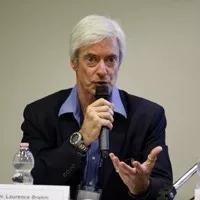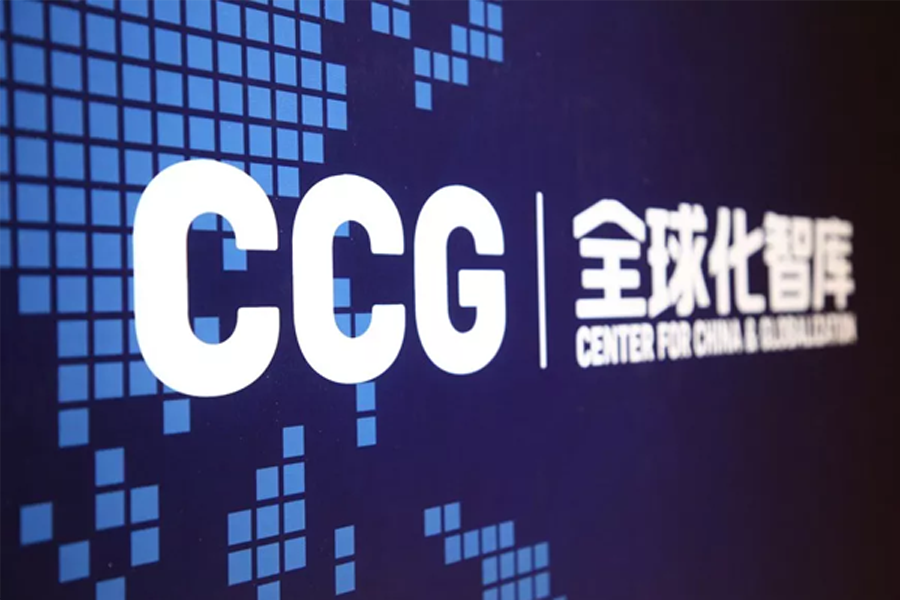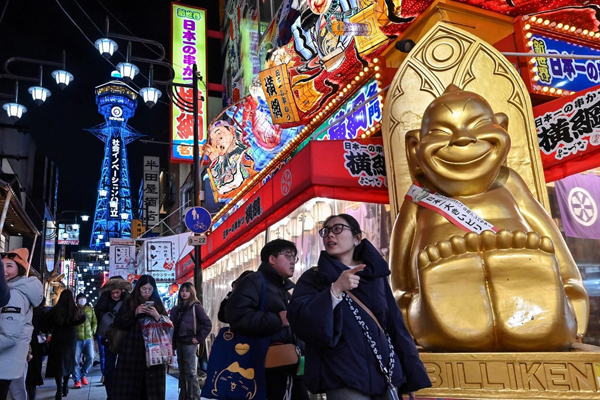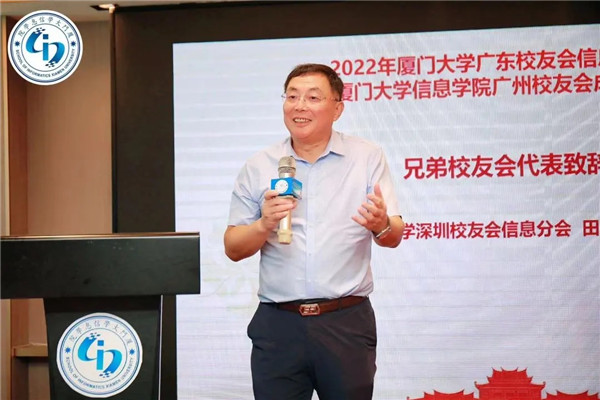Laurence Brahm: Nobody should be first in a community with a shared future
2018年1月31日

Chinese President Xi Jinping delivers a keynote speech at the opening plenary of the 2017 annual meeting of the World Economic Forum in Davos, Switzerland, Jan 17, 2017. [Photo/Xinhua]
On Jan 26, American President Donald Trump addressed the World Economic Forum in Davos, Switzerland. Repeating his slogan of “America first,” Trump set forth his vision of business greed to achieve short-term self-interest, as the principles he will promote as American values in the years ahead.
For the developing world, there is both concern and even fear over the trajectory of Washington’s current global policies, manifested in imperial arrogance, unscientific disregard of our planet’s ecological fragility, and reckless brinkmanship in regions of political and cultural sensitivity. Europeans who have traditionally upheld “American values” as representing “North Atlantic values” are now questioning what these values really are and what they mean in the Trump era? In fact, the world is looking for a new set of values.
Ironically, just one year ago, following his own speech at Davos, President Xi Jinping addressed the United Nations Office in Geneva. There before the UN, Xi put forth a vision of comprehensive shared development based on recognition of the economic interconnectivity of all nations as a global community that is both interdependent and increasingly integrated. President Xi called it “a community with a shared future for mankind.”
We could understand the contextual framework for a “community with a shared future for mankind” as supporting ideas of diversity, mutual respect of cultural and social differences, and multilateralism. Included with these are goals of eliminating poverty, food and water security, and reducing conflict and violence through economic empowerment and respect for the cultural differences of others.
An ill-conceived, un-informed, and short sighted cowboy approach – my way is the best way, so ride roughshod over everyone else – attributes to many of the economic dislocations, refugee crisis, and terrorism that ceaselessly erupt across the planet today. Conflict, war and terror arise when people are disempowered economically and when their identity is marginalized. Narrow self- interest is the reason for our global political volatility. Investment in infrastructure and connectivity that can empower people locally, and together with respect for their cultural integrity, will reduce a vast amount of conflict and terror.
The idea of a “community with a shared future for mankind” of course draws from China’s own experience in rising from poverty to economic strength. Without infrastructure, transport, communications, electricity, water and health care, people’s lives will not improve. But such infrastructure needs to be smart, green and blue.
“Ecological Civilization,” China’s new policy for reducing fossil fuel dependency, restoring the environment, and respecting natural boundaries and culture, not only calls for the protection of the environment; it envisions environmental protection as the next driver for technology, innovation and a plethora of new industries for renewable energy grids, transport and household appliances. Today China leads the world as the largest issuer of green bonds, debt instruments that must apply finance to renewable infrastructure development. It is leading the global fight against climate change.
China is laying out a football field worth of solar panels each day, leading the world in renewable energy grids, while the Trump administration is turning America back to a coal-fired industrial era. Meanwhile China leads the world in renewable energy system exports, while Trump slaps tariffs on Chinese made solar panels. Ecological civilization could prove to be China’s soft power engine in the decade ahead.
Today with the emerging South-South cooperation, it is more a question of capital investment, infrastructure and integration of experiences and coordination of policies on a host of international issues. In 2016 the World Bank’s total aid to developing countries amounted to $61 billion. In the same year China’s aid reached $727.2 billion. Loans from China’s EXIM Bank alone exceeded the total provided by the World Bank.
China is taking its own experience and sharing it globally through the Belt and Road Initiative. Evolving an integrated network of communications and transportation will facilitate investment and development across the South-South zone or belt, and build economic resilience for everyone involved. This is making the vision of a “community with a shared future for mankind” a reality.
China does not come with political conditions or imposition of cultural values. It is about financing the infrastructure and connectivity to get people out from underdevelopment, end poverty, and make nations competitive. Only by respecting each other’s culture, heritage and diversity can we have a world of diversified localization rather than monolithic globalization.
The solution for any country or people does not need to come from outside. The solution is within the culture, economy and psychology of each people and nation. From these sets of shared solutions that are pragmatic, ecologically scientific, and sensitive to local cultures and conditions, we see emergence of the concept of a “community with a shared future for mankind.” Only this way can there be true diversity and in turn resilience. The concept of a “community with a shared future for mankind” is not based on a single model, but about being responsive to change, rather than reacting to crisis.
Laurence Brahm, a senior research fellow at Center for China and Globalization(CCG), founding director of the Himalayan Consensus. 
From China Daily,2018-1-27






